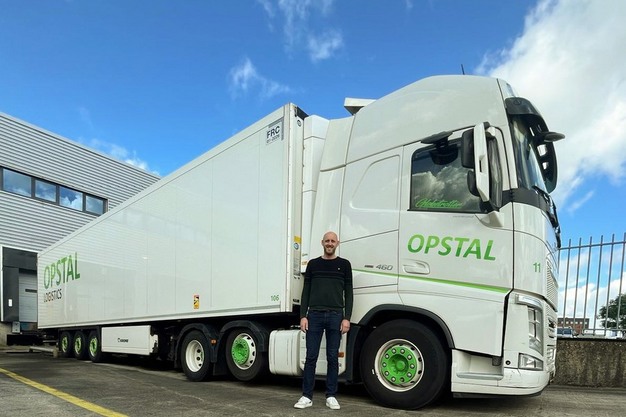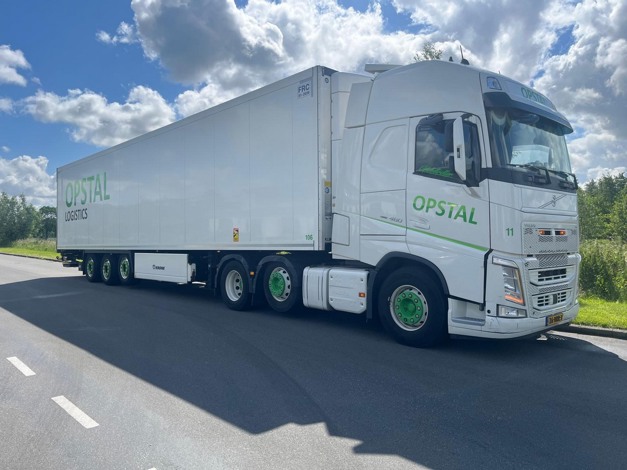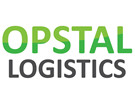In the European Union, the transport sector is responsible for about a quarter of CO2 emissions, thus contributing significantly to that total. John Opstal of Opstal Logistics explains how his company meets this challenge. From January 1, 2025, large EU companies, including those in the food sector, must report their CO2 emissions. Opstal Logistics, a Dutch company, is working on automatically delivering these reports to customers, using approved calculation models like the ISO model.

Reducing emissions
Besides reporting, Opstal Logistics is actively working toward cutting back on emissions. Small things such as optimal tire pressure help, but the focus is on vehicle type. LNG vehicles are an option, though John sees more of a future in electric vehicles. The technology around hydrogen is still too new and expensive. On the other hand, electric trucks with ranges of up to 600 km make overseas destinations feasible.
Jan: "We started with trucks with an 80 km range. Now there are already ones with a range of 500 to 600 km on the market. Then Paris becomes within reach of the Netherlands. Belgium has plenty of recharging facilities on its roads around Antwerp and Ghent. France, not so much. But we're working with our clients in Paris to see if they can install a charging station on their premises."
Earning money from recharging stations
Opstal Logistics is looking into installing recharging stations at client sites, and if they are powered by green energy, have these become possible revenue models. They could supply the generated electricity to carriers and trade emissions allowances. The company has ordered its first electric truck and expects them in the third quarter of next year. Although they are currently more expensive than diesel trucks, subsidies are available, and Germany already offers toll exemptions for electric vehicles.

Challenges and future perspectives
Despite the higher costs, Opstal Logistics wants to switch to electric transport, even though its customers are not yet willing to pay more for sustainable transportation. John thinks that willingness will increase in the future, especially if CO2 emissions start being priced. However, erratic policies, like the Dutch government's latest announcement to roll back subsidies for electric vehicles, present challenges.
Groupage and efficiency
Opstal Logistics has been using groupage for years to reduce CO2 emissions. Different carriers working together and having higher load factors can increase efficiency. Here, economies of scale and cooperation are crucial.
John believes the future is electric, and EU regulations are beginning to support that. Those include making electric vehicles slightly longer and heavier than diesel ones, necessary to maintain the same load capacity. Opstal Logistics wants to be ready for that future and, so, keeps investing in electric transport experience and know-how.
For more information: Opstal Logistics
Opstal Logistics
Boerhaeveweg 4
2408 AD Alphen aan den Rijn
Tel.: +31(0)10 333 0228
Tel.: +31(0)6 1468 0522
Email: [email protected]
